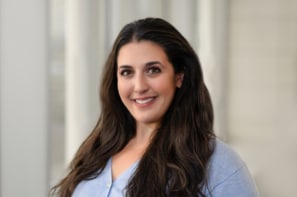At a meeting last week on “Science & Responsibility”, Joseph Rotblat, winner of the 1995 Nobel Peace Prize, called for scientists to sign the equivalent of a ‘hippocratic’ oath.
A number of notable speakers attended the event which was organized by the UK Pugwash group and held at the Royal Society in London.
Sir Michael Atiyah, ex-president of the Royal Society and President of Pugwash Conferences on Science and World Affairs, started the proceedings by arguing that “Scientists have a responsibility greater than that of the average citizen”. His reasoning was that as scientists have the knowledge and skills to interpret complex scientific data, they have a duty to inform others of any dangers in their work. His greatest worry was that “If scientists don’t get involved with the ethical debates, the public will backlash against science.”
During his speech, he pointed out the success of movements such as the Federation of American Scientists and Friends of the Earth in promoting scientific analysis to the public.
Bernadette Modell, professor of genetics at University College Medical School, London, described how medical research has affected her principles. She advocates massive screening of the population for hemoglobin diseases. In the UK 10 percent of the population are carriers, and the figure is much higher in the developing world. “Screening is a controversial idea in the medical community, ” she told the audience. Statisically 98 percent of couples want prenatal screening to find out if they are carriers. The ethical implication of screening is that 70 percent of couple would terminate a child with the disease. Prof Modell pointed out “the closer you are to the patient, the more important the patient needs become.”
Ruth McNally of Brunel University discussed some of aspects of commercial scientific research as organizations rush to patent their work. “There is a unholy alliance between biotechnology and patents” she claimed. Her largest concern is a new law on patents passing through the European Parliament. If passed, the law is expected to form the basis of a global patent law on biotechnology. She called on scientists and the public to campaign against it.
The panel finished with Sir Martin Rees, an astronomer at Cambridge University, suggesting weapon scientists were responsible for increasing tension during the cold war. He pointed out how the lack of public controls in the weapons laboratories had created billion dollar programmes with limited research accountability. Rees also stressed how important whistle blowers have been in providing information on such projects. The failure of the X-ray laser, he said, would never have come to light but for the scientists who told the US Congress about it. Rees was also worried about the lack of independent experts available to review defense research in the UK.
In the question session afterwards, Frank Blackaby asked why the speakers had not discussed the issue of whether an action is right or wrong, whatever the morality? Professor Rotblat called for scientists to sign a hippocratic oath, and pushed for the formation of a international science panel on ethics. Jack Boag of the Institute of Cancer Research, University of London, pointed out there already existed a hippocratic oath for scientists, promoted in the US by Student Pugwash USA.
An member of the audience suggested that limited access and misreporting in the media created mistrust between the public and scientists. Others added that censorship in UK laboratories on the BSE disease was not caused by the media but government policy. Georges Kutukdjian, Director of the Bioethics Unit at UNESCO, said that UNESCO has been encouraging newspapers in the developing world to promote science and technology in local news to help break down barriers between science and the public.



